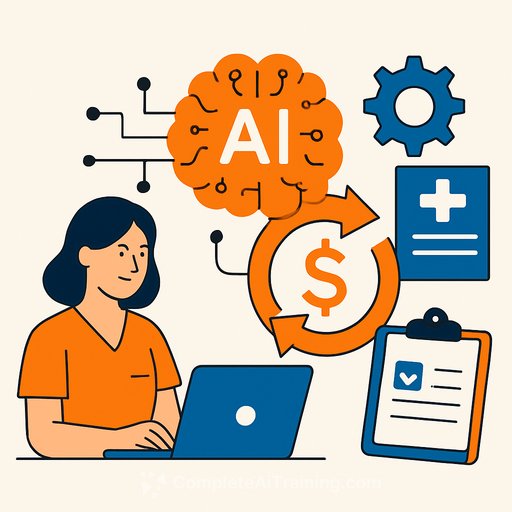How AI is Enhancing Revenue Cycle Management
A recent survey of 316 healthcare finance and IT leaders reveals growing confidence in artificial intelligence (AI) for revenue cycle management. The data shows that AI-driven improvements average 20% or more across critical revenue cycle outcomes.
These findings reflect real gains in automation, accuracy, and transaction speed, confirming that AI is delivering tangible value in healthcare revenue processes.
Where AI Delivers the Most Value
The survey highlights that AI exceeds expectations most notably in automated revenue capture and coding. About 84% of respondents reported that AI met or exceeded their expectations in this area, with 53% saying it went beyond what they anticipated.
Claims management automation also showed strong results. Half of the participants noted AI outperformed expectations here, while 32% said it met expectations. Only 18% felt AI fell short.
Analytics and reporting through machine learning and predictive analytics impressed 89% of those surveyed. Nearly half said AI exceeded expectations in improving insights and reporting accuracy.
Other areas where AI shined include:
- Increasing accuracy of transactions and reducing errors
- Speeding up patient eligibility verification
However, AI still faces challenges in improving denials management and security within revenue cycle workflows. While many felt AI met expectations in these areas, a notable share—27% and 23%, respectively—reported that AI fell below expectations.
Growing Confidence Beyond the Hype
The survey signals that AI is moving past hype into practical application. Providers are recognizing real workflow improvements and streamlined billing processes. As a result, trust in AI solutions is increasing.
Currently, 60% of respondents express more confidence in AI’s ability to support revenue cycle functions than when they first adopted it.
Still, trust remains a barrier for some. About 39% of respondents say mistrust of AI output influences their investment decisions, although nearly 60% have seen their mistrust decrease significantly over time.
When it comes to healthcare payments, only 8% felt AI was less accurate than humans, and another 8% said it was too early to assess. Meanwhile, 41% believe AI payments are slightly more accurate, and 19% say significantly more accurate.
Investment Plans and Future Focus
With rising confidence, healthcare organizations plan to increase AI investments in revenue cycle management. Fifteen percent intend to boost spending by 10% or more over the next one to two years, while 44% expect a 1% to 9% increase.
Emerging AI capabilities of interest include enhanced payer engagement, especially using generative and agentic AI solutions.
Providers are targeting improvements in key metrics such as:
- Claim rejection rates
- Net collection rates
- Cost to collect
For professionals looking to deepen their understanding of AI in healthcare finance and management, exploring specialized courses can be valuable. Resources like Complete AI Training’s healthcare finance courses offer practical insights tailored to management roles.
Your membership also unlocks:





